Parents threatened and blamed by authorities as 1,000 adopted children returned to care
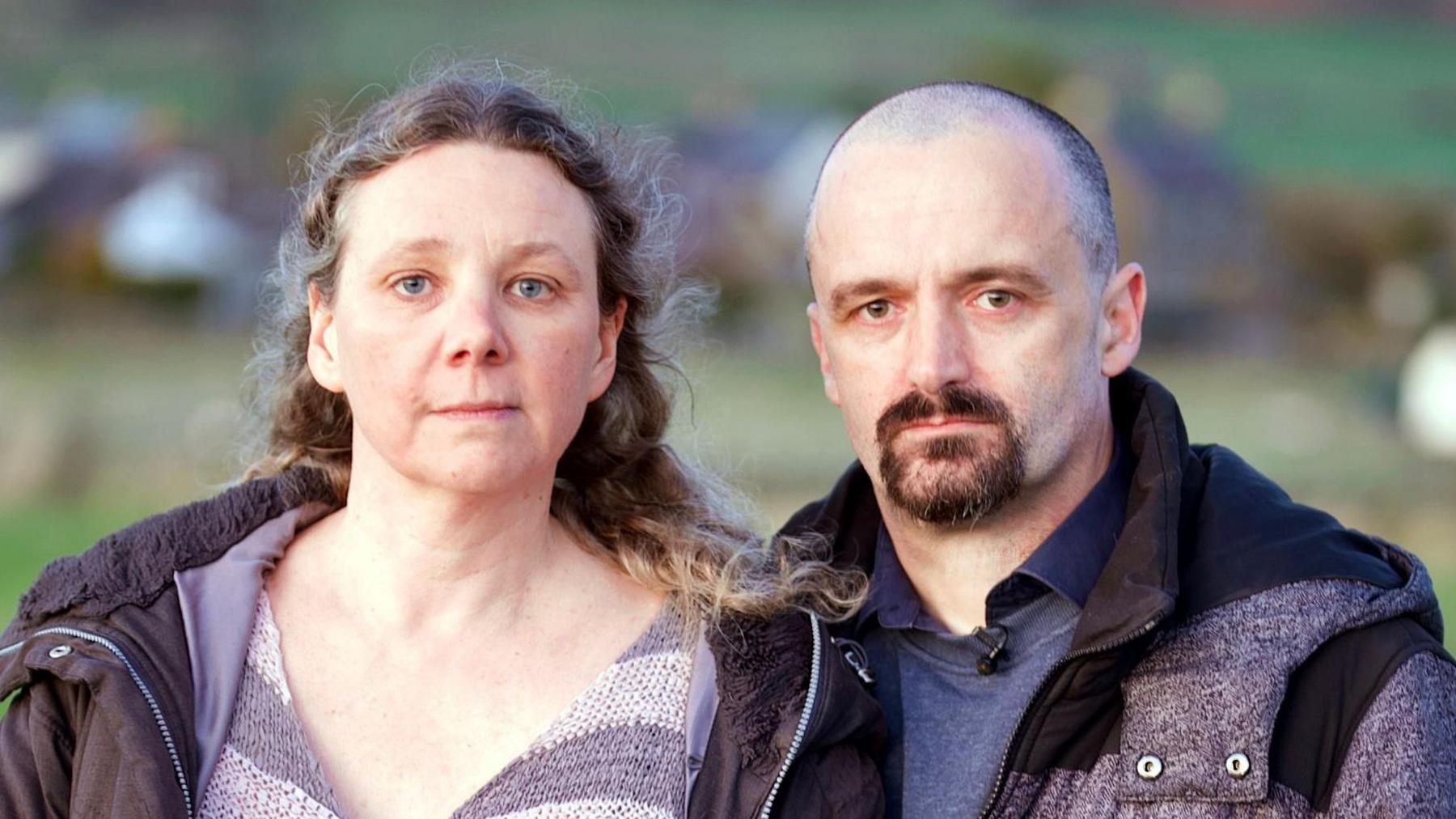
Verity and Ian were threatened with prosecution for child abandonment
- Published
Verity's breaking point with her adopted son Liam came after she had already been threatened with knives and arrested by police following untrue allegations.
Her husband Ian recounts that she said at one point to a social worker: "What if we just can't do this any more?" He says the social worker's reply came without a moment's hesitation: "You'll be prosecuted for child abandonment."
Verity and Ian are just two of 50 parents the BBC has spoken to during a six-month investigation into why adoptive families are being broken apart and their children returned to care.
It has uncovered a hidden world where parents are subjected to lies and blame by authorities across the UK, as they struggle with the needs of traumatised children who have often suffered abuse and neglect before they were removed from their birth families.
Parents speak of being threatened, harassed and pushed into mental health crisis, while one adopted teenager who returned to care says that with more support his family might still be together now.
Warning - this story contains discussion of suicide
The BBC conducted the most extensive Freedom of Information request ever into adoptions that have broken down, finding that more than 1,000 adopted children in the UK have returned to care in the past five years. That is much higher than the figure in a recent government report - but the true number is likely to be even larger, as only a third of authorities said they collected this data as standard practice.
One couple told us the issue is a "national scandal" and that "adoption as it stands" is "not fit for purpose".
As part of the investigation, we also learned:
Nearly a quarter of the adoptive parents who spoke to the BBC said they had been taken into police custody as a result of allegations of abuse by their children, which were later found to be untrue
A whistleblowing social worker revealed a culture of blame against parents when adoptions run into problems and said they are "sold a lie" about post-adoption support
New research by Lancaster University found that 38% of adoptive parents said they had considered returning a child to care
A Department for Education spokesperson said that "adoptive parents do an incredible job providing a loving and supportive home to some of the most vulnerable children in our society", and that while those arrangements sometimes break down "support is in place to help adoptive families and keep them together where possible".
The department said it will offer families earlier and better support through the Children's Wellbeing and Schools Bill. But neither the government nor the Local Government Association, which represents local authorities in England and Wales, responded to the BBC's questions about parents being threatened and blamed.
Verity and Ian, from Yorkshire, adopted their son Liam and daughter Lauren 15 years ago, when Liam was two-and-a-half and his little sister was one.
As Liam grew, his behaviour became volatile and increasingly violent, throwing things and screaming at his parents.
They now know that before Liam was adopted, he had lived in a household where there was extensive domestic abuse.
File On 4 Investigates: Adoption
Listen on BBC Sounds now - or on BBC Radio 4 at 20:00 GMT on Tuesday 2 December, and 11:00 GMT on Wednesday 3 December
Verity and Ian were sent on seven parenting courses during Liam's childhood, which Verity says placed the blame on them as a couple. Meanwhile, she says: "The fundamental cause of his behaviour is being totally missed and ignored. The trauma is being totally ignored."
The couple recall good times, too, as they supported Liam's passion for dance, watching him at countless competitions. But they describe his teenage years as a "living hell" and they feared for their safety as he would threaten them with knives.
One morning, Verity left a note for Ian and drove to the coast with the intention of killing herself. A passer-by spoke to her, which she says saved her life.
On another occasion, after one of Liam's meltdowns, his parents called the police as they had been advised to in a situation like this. But it was Verity who was arrested, after Liam accused her of assault.
"It's the worst experience I've ever had. And that was the point at which I knew that we couldn't even phone the police any more," she says.
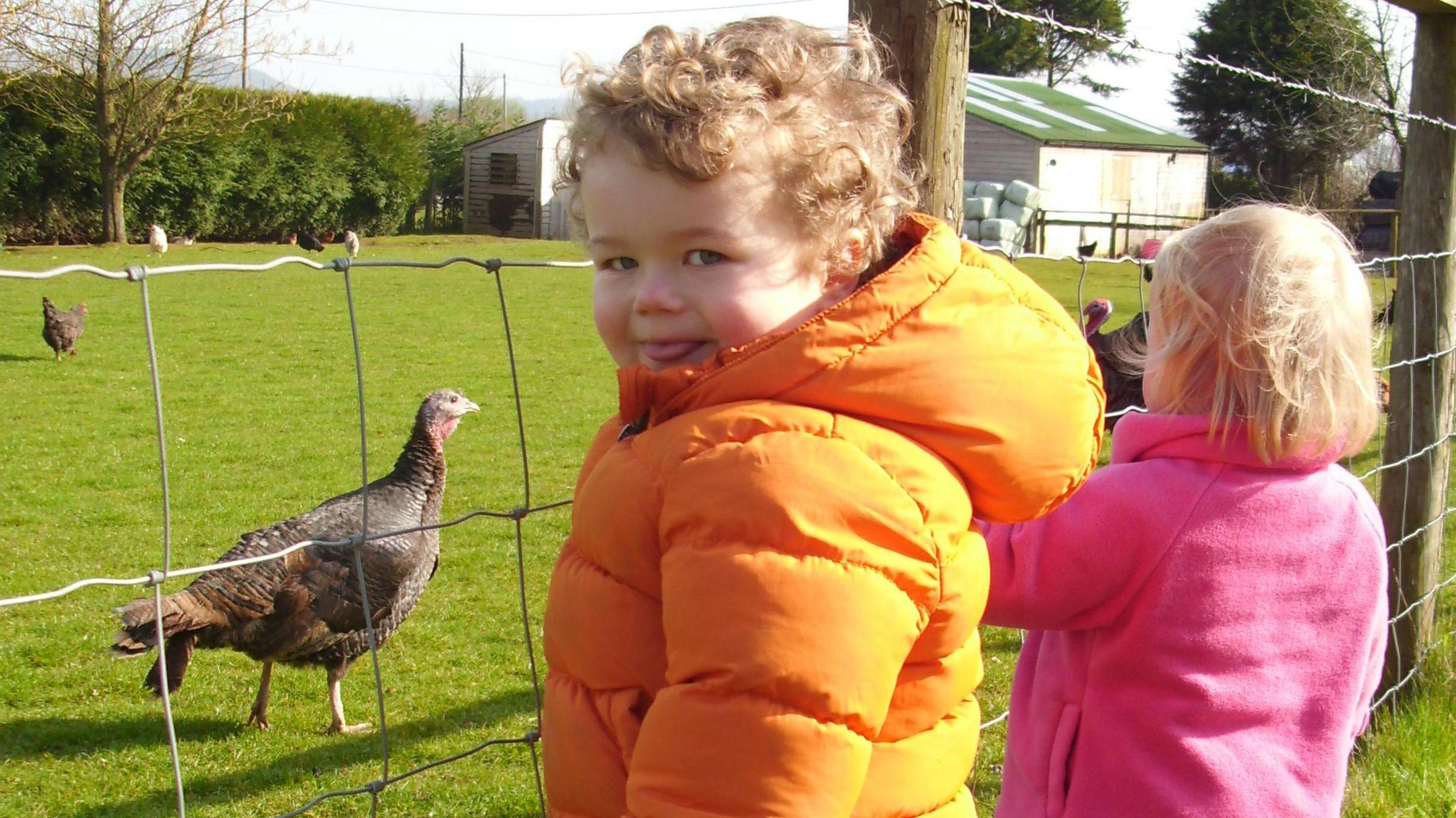
Liam was adopted aged two-and-a-half from a household where there was extensive domestic violence
Verity was released without charge but she and Ian knew they could not continue to live with Liam. Having already been threatened with prosecution, however, Ian said they knew the process of returning Liam to care would be "adversarial" and "laden with threats and misleading bullying tactics".
Similar legislation across the nations of the UK allows children to be taken back into care, but local authorities require each case to reach a "threshold" where they need to intervene, which usually means looking for evidence of abuse or neglect.
Ian and Verity's home was described in one local authority document as "not a place where Liam feels loved and supported". Verity says: "The way it's written is still blaming us as parents for the home situation, but actually that is not the case at all."
'My heart just broke'
In the end, worried they could no longer keep their daughter safe, Verity and Ian felt they had to force the local authority's hand. Through their solicitor, they gave a deadline after which they would no longer be able to offer Liam a home, and it would become the council's duty to accommodate him.
Liam was away from the house, working with one of the dance competition organisers, when she broke the news to him. "She came up to me and she was like, 'I've just had a call with your social worker and you can't go home'," he told the BBC.
"And just hearing that, my heart just broke."
Verity says: "It was awful. It was traumatic. It was haphazard. We were forced into doing it this way, and essentially making him homeless, in order for the local authority to get their acts together."
Now aged 17, settled and living independently after several previous moves, Liam takes responsibility for his behaviour, but says it is "a shame that it's impacted what I call a family". He says returning to care was "the kick up the arse" that he needed.
"But I think if social services had sorted themselves out, and I think if we had sorted ourselves out, personally, we could have pushed through and maybe it would have been a different situation," he said.
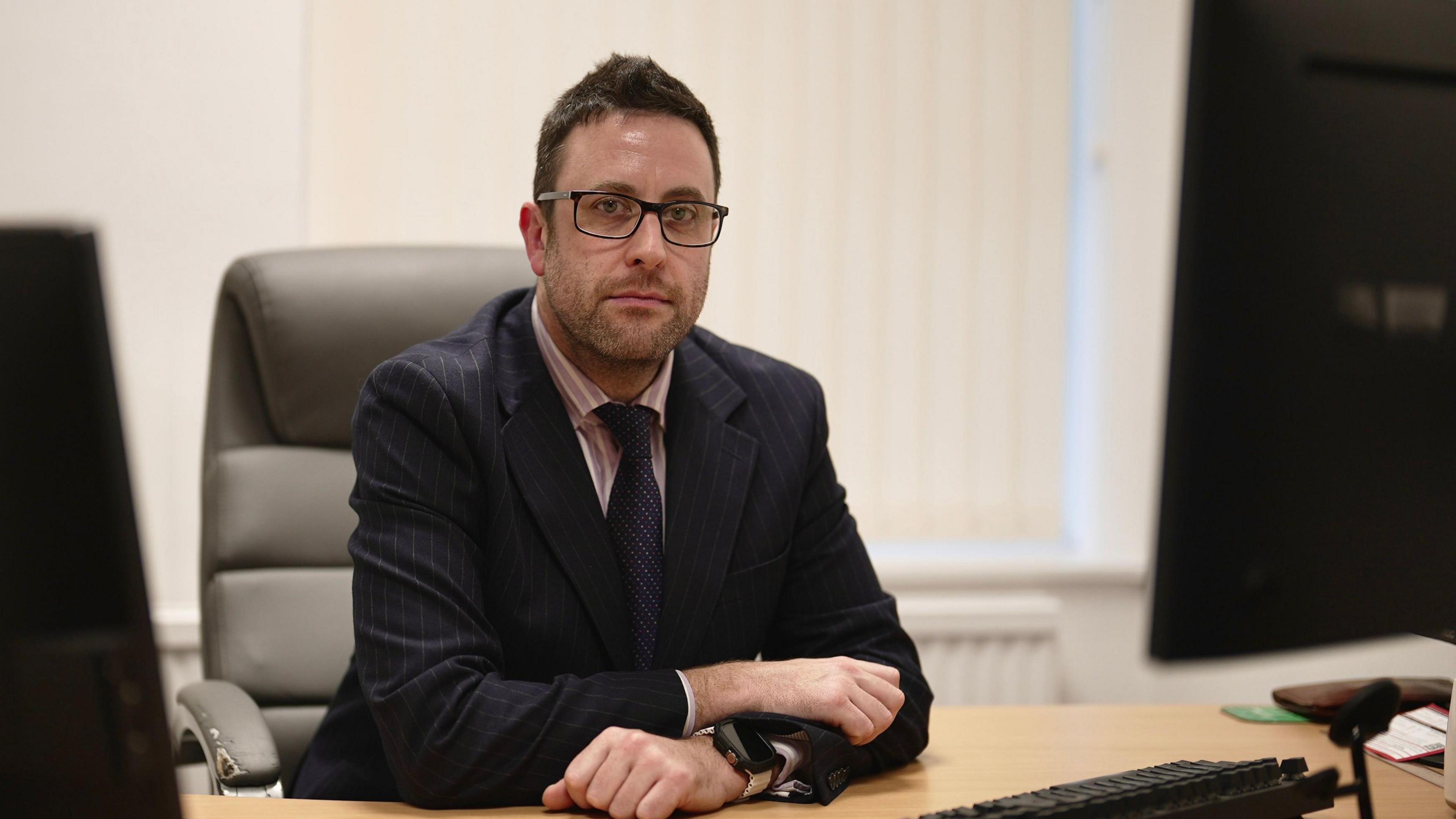
Specialist adoption solicitor Damien Dobson says families are being forced into heartbreaking decisions
Social workers are involved in every adopted child's case and often families continue to need their support for many years. They also play a vital role in identifying and helping children at genuine risk of harm.
Verity and Ian's local authority, North Yorkshire Council, said it couldn't discuss individual cases, but it recognised "how difficult challenges linked to adoption can be for families" and it said it provided "compassionate, practical support when this happens".
Parents who can no longer cope, or no longer feel they can keep their family safe, have to take the "heartbreaking" decision to "legally abandon" their son or daughter, says Damien Dobson, a specialist adoption solicitor.
Over the past five years he has worked with more than 400 families and says the numbers seeking help are rising.
England's Children Act is outdated, Mr Dobson says. He says local authorities should have an option to voluntarily accommodate a child that would be considered beyond the parent's control, without the presumed need for evidence of blame.
'Desperate for help'
Verity and Ian were among dozens of families the BBC met in Manchester, at an event organised by a group called Patch - which stands for Passionate Adopters Targeting Change with Hope - whose members are adoptive families challenging what they see as fundamental failings in the system.
"Adoption is lifelong, so must be the support," says Jackie from Essex, one of the parents.
Fiona Wells, who is adopted herself and a social worker, set up the group after she faced huge issues with her three adopted children. Patch now has more than 1,800 online members. "Families are joining us all the time who are desperate for help, who have reached crisis," she says.
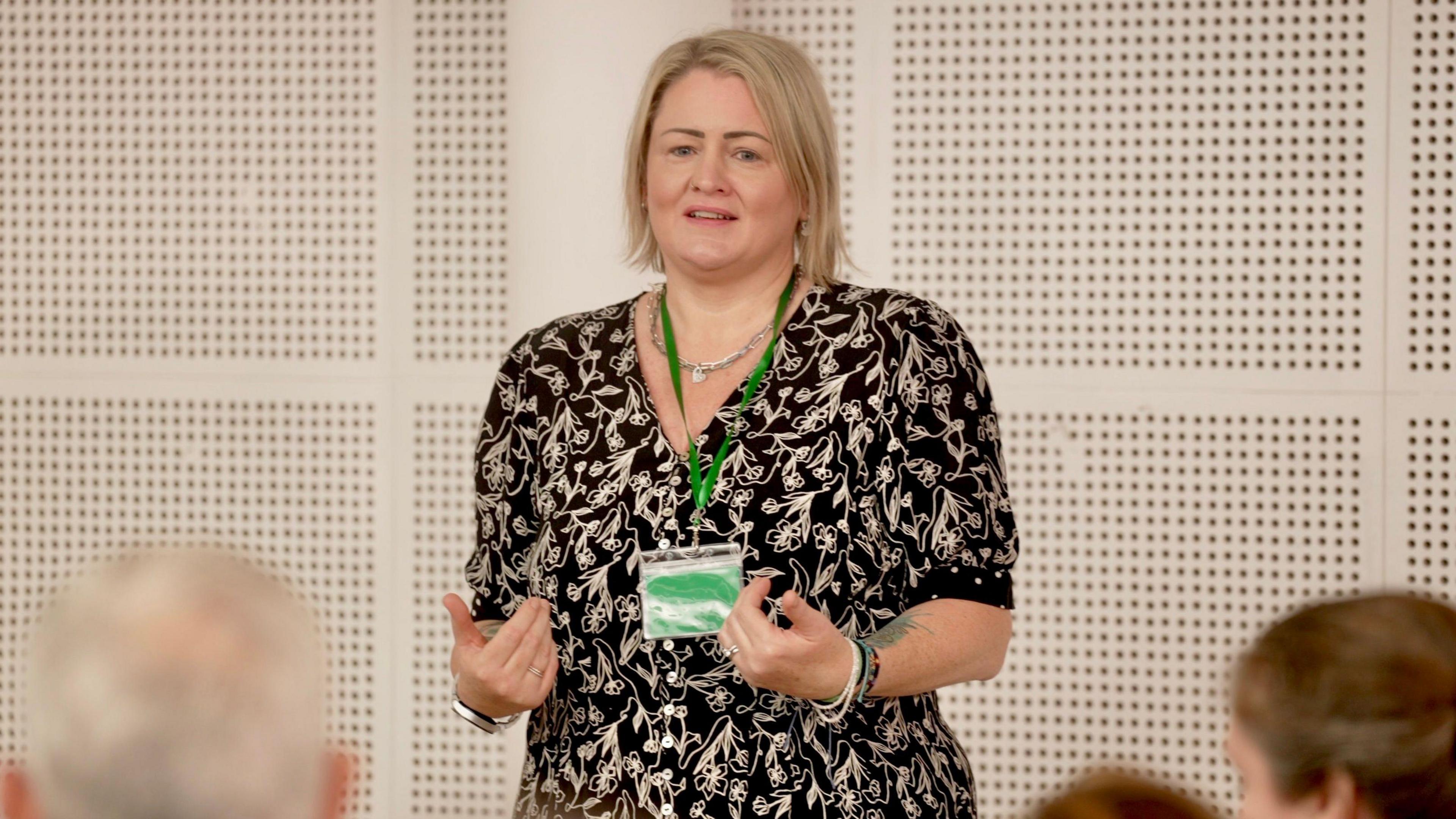
Fiona Wells says families in crisis are joining her support group all the time
Many in the room no longer live with their adopted children, who have gone back into care. Authorities describe this as a "disruption" if it happens before the adoption order is signed and finalised, and a "breakdown" if it happens afterwards.
But in many cases, even after a child returns to care, their adopted mother and father retain parental responsibility in law and remain in contact with them.
Results of the BBC's Freedom of Information requests show that, in the past five years, more than 700 children were returned to care before an adoption order was signed and more than 350 afterwards. About 3,500 children are adopted each year.
These findings are "shocking" but are only the tip of the iceberg, says Prof Laura Machin from Lancaster University, who runs a research group examining adopters' experiences.
Government guidance asks for adoption disruptions to be recorded, but does not mention breakdowns - so children who return to care after the adoption is finalised may not be counted, she says.
If you've been affected by issues involving adoption or mental health and self-harm, information and support is available at BBC Action Line
Prof Machin says her research, which surveyed 512 adoptive parents, suggests many adoption disruptions and breakdowns could be avoided with timely and appropriate support.
"The money can be found - because when that child returns back into the social care system, the money magically appears. However, it would have been more cost-efficient if they had actually got the support with early interventions," she says.
Many other parents told the BBC they wanted to speak out, but were prevented from sharing the full details of their cases due to reporting restrictions on Family Court proceedings.
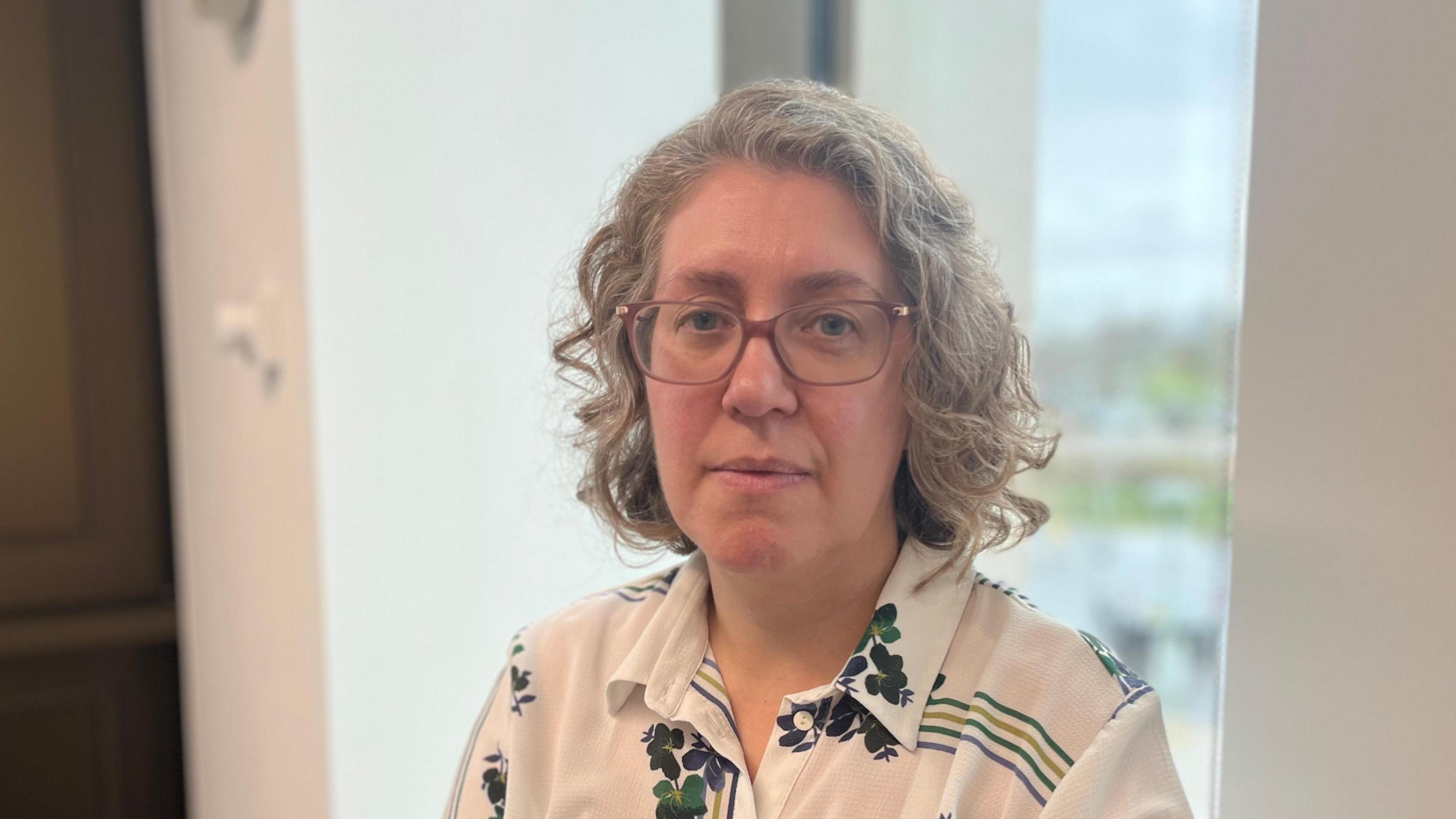
Prof Laura Machin said the figures are shocking, but may be only the tip of the iceberg
One mother, who asked to be identified only as "Rachel" because she was afraid of retaliation by the authorities, said she and her husband had been threatened with police action and wrongly told by the local authority they would have to sign away parental responsibility when they asked for respite care.
Rachel and her husband say they were never told about their two girls' extensive and complex needs when they adopted them 10 years ago.
During a six-year battle to get them support, the couple say social workers lied directly to their children and disinformation about the family was circulated between officials.
"It was clear that they had no intention to support and within that comes the start of sort of unpleasant insinuations, sort of lies. Just, you know, 'Well [the children] seem fine to us, therefore it must be your problem'," says Rachel.
Matt - not his real name - and his family endured years of violence when his son developed serious behavioural issues. After his son eventually returned to care, Matt took his local authority in Scotland to court over its failure to provide support - citing the Human Rights Act and the right to a family life.
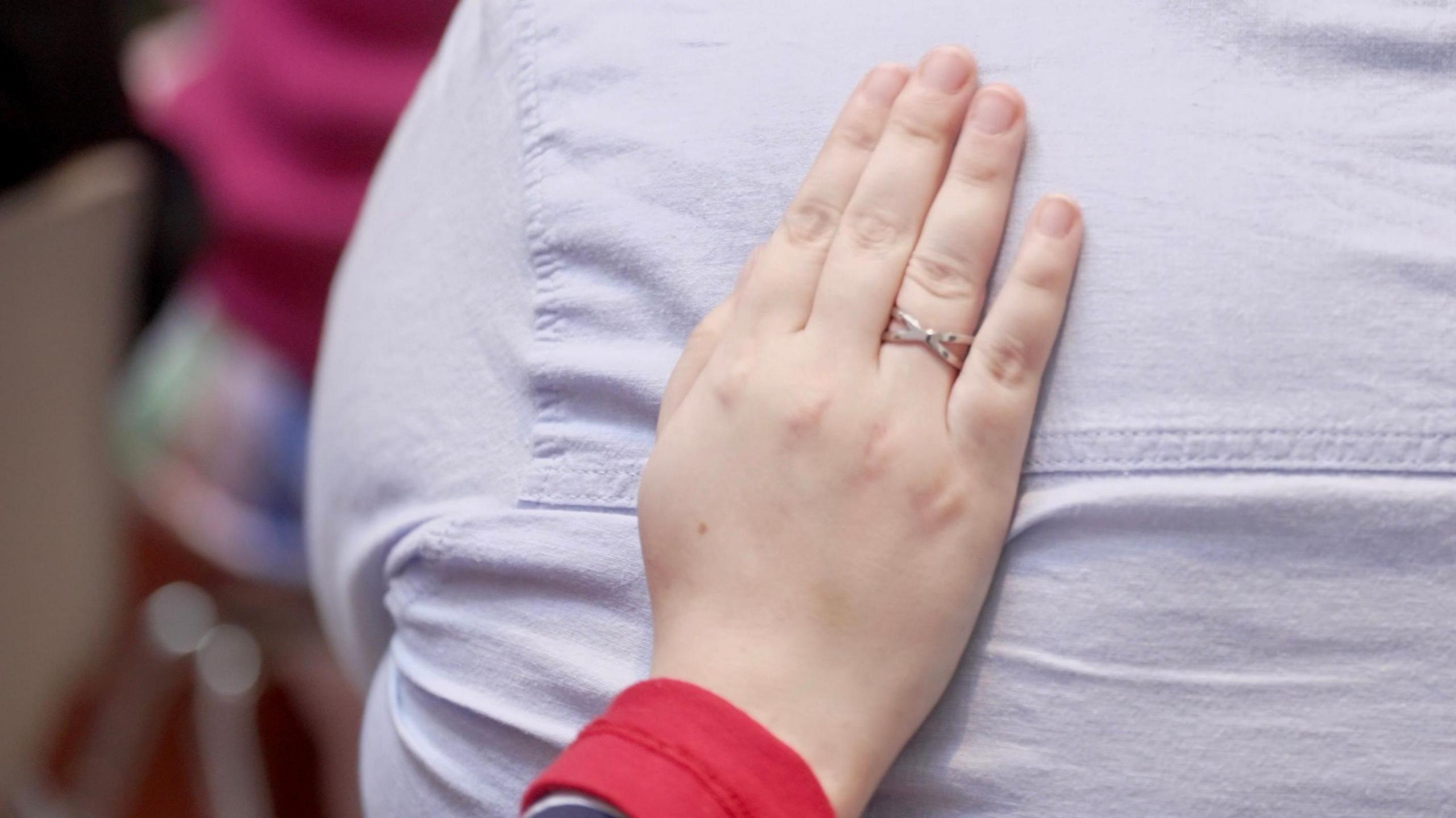
Many at the Patch support group told us they had been prevented from speaking out because of court reporting restrictions
"The level of shame and guilt, it is like grieving for someone who's not dead," Matt said. "You just feel like an absolute failure."
Unusually, he won an apology.
The case was settled out of court with his council paying the court costs. It was not about the money, Matt says, he wanted to get the local authority to "admit that they've done something wrong".
His council said their social workers are committed to working with Matt and his family and apologise for "any shortcomings".
'Last resort'
One social worker with 25 years' experience across 12 different local authorities, who we are calling Sarah, told the BBC that every adopter she has worked with was assured they would get support after the adoption order was signed, but that they were "sold a lie".
Sarah said she used to blame the parents when she saw adoptions in crisis. "I've heard that narrative being used many, many times by a manager, by other social workers," she said.
But the growing number of breakdowns over the past 10 years had changed her mind and prompted her to speak out, she said.
Social workers can lack understanding and may not listen to parents because "we've got high caseloads, we haven't got time to sit and listen", Sarah said. "All that contributes to a blame culture as well."
The British Association of Social Workers said the social work sector is "under considerable strain", with the highest level of referrals to children's social services in a decade and a depleted workforce.
But it said there is often a policy or practice of offering "care as last resort", which means the need to take children into care is put off until it is too late to be planned properly.
Liam's parents say when they adopted him, they were told all he would need was love - but the reality was far more complicated. "Love is not enough," Verity says. "We still love Liam. Love is not enough."
Their relationship has improved since Liam went into care, but they and many other adoptive parents are pushing for the system to change.
"Our children have experienced frightening, scary, overwhelming, terrifying things. They should be afforded treatment for that," says Fiona Wells from Patch. "And if we're not healing children who've experienced such adversity, we're ignoring it."
Get in touch
Have you been affected by the issues raised in this story? If you feel able to do so, get in touch.